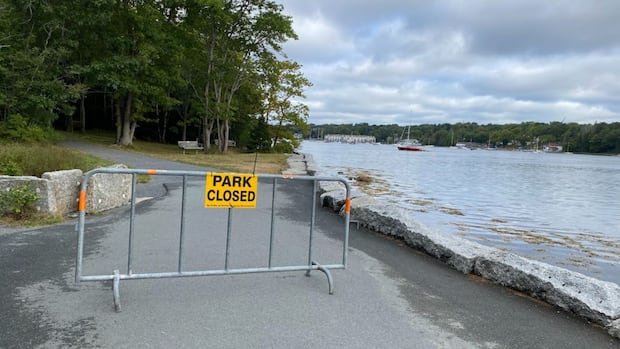Avoid venturing into the forests. No hiking, fishing, camping, or ATV rides were permitted in Atlantic Canada this summer due to high temperatures and dry weather conditions.
However, these restrictions led to disagreements across the region and the country, which according to Eric Kennedy, an associate professor at York University specializing in disaster and emergency management, is not surprising.
Kennedy emphasized the political nature of wildfires throughout history, highlighting the dilemmas surrounding which fires to combat, whose interests to safeguard, and how resources are allocated for fire preparedness.
This summer, New Brunswick, Nova Scotia, and Newfoundland and Labrador faced severe wildfires, prompting Nova Scotia and New Brunswick to ban fires and limit access to Crown land, a measure adopted by several municipalities.
However, some criticized these restrictions, citing violations of the Canadian Charter of Rights and Freedoms, arguing that the prohibitions extended to activities with minimal fire risk.
Kennedy stressed the importance of provinces collaborating on response strategies as wildfire seasons become lengthier and more dangerous.
Resistance
When Nova Scotia announced restrictions on Crown land access that included increased fines for violators in August, the public response was swift. Questions arose about how activities like walking dogs or biking could pose fire hazards.
Residents expressed concern, with some like Julissa Stewart from Louisdale, N.S., questioning the rationale behind the bans, distinguishing between intentional fire-starting and harmless outdoor pursuits.
Following the restrictions, army veteran Jeff Evely openly defied the ban on forest access, receiving a hefty fine of $28,000, which he intends to contest in court.
The Canadian Constitution Foundation, known for challenging government actions, plans to contest Nova Scotia’s province-wide ban, while Fred Delorey of North Star Public Affairs noted that most Nova Scotians supported the restrictions despite external criticism.
Easing Restrictions
In New Brunswick, industrial activities in forested areas were halted, affecting woodlot owners’ ability to harvest timber, leading to significant financial losses.
Rick Doucett, president of the New Brunswick Federation of Woodlot owners, acknowledged the necessity of the restrictions but highlighted the financial strain on workers.
Several restrictions have been lifted, with New Brunswick reopening Crown land and public parks, while Nova Scotia maintains a burn ban and limits access to Crown land due to ongoing firefighting efforts.
Kennedy stressed that even after restrictions are lifted, the conversation on managing wildfires should continue, urging innovative solutions amid longer wildfire seasons.
‘A People Problem’
Kennedy emphasized that wildfires are fundamentally a societal issue, requiring considerations of values, priorities, and collaborative problem-solving.
He underscored the need for transparency in government communications about restrictions and suggested building trust through community engagement and education on the reasons behind the measures.
Kennedy proposed exploring alternative approaches, such as investing in infrastructure and environmental management to create safer outdoor environments for activities like camping and fishing.


